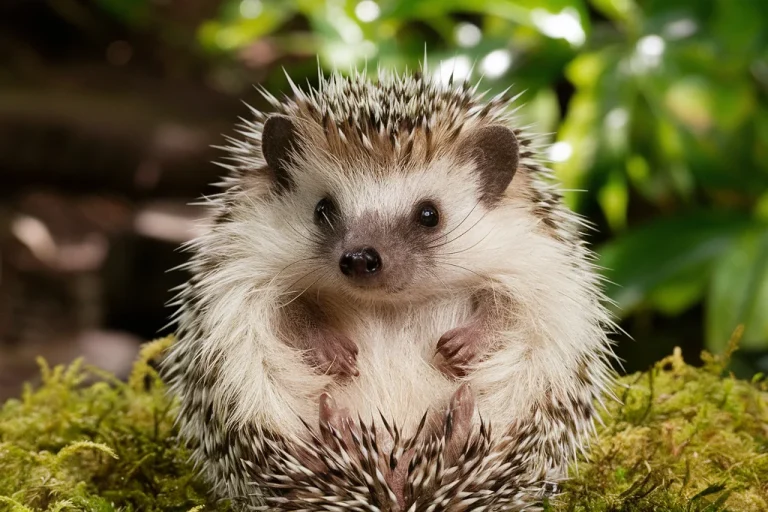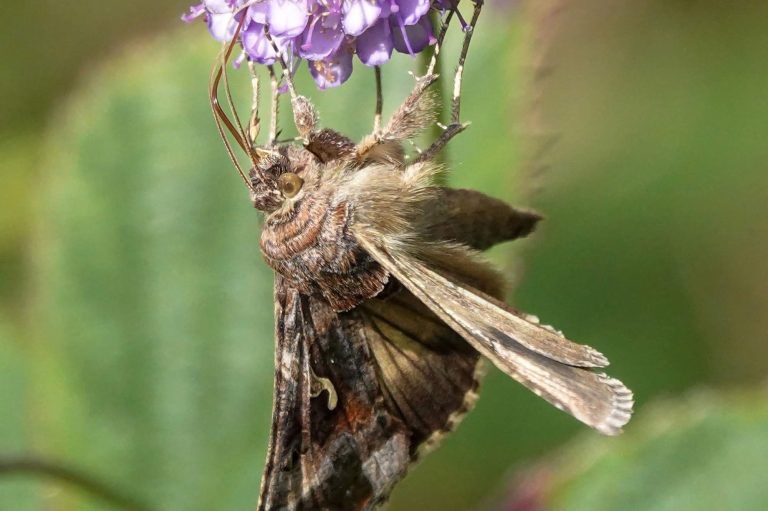Churchstanton 2030 - Wild Spaces
Embrace Rewilding: Transform Your Garden into a Haven for Wildlife
In an age where urbanisation and climate change are rapidly encroaching on natural habitats, every green space counts. Rewilding your garden is more than just a trend; it's a powerful step toward restoring biodiversity and fostering a harmonious ecosystem right at your doorstep.
Get involved!
Formed in May 2023, our Wild Spaces group aims to encourage residents to take every opportunity to increase biodiversity in our Parish.
We launched Somerset Wildlife Trust’s “Wilder Gardens” scheme, early in 2024 and will hopefully secure Wider Community status for Churchstanton over the coming months. A big thank you to all those who have already secured their plaque, we still need a few more people to get involved, more info below and the application form is here.
October 2024 - Latest News

Our Latest News - Come and Join Us!
Our small but enthusiastic Wild Spaces core group is looking to expand so that we can organise some more fun, community projects in the coming year. Whatever your age, if you are creative, passionate about our natural world and would like to help us make a difference, we’d love to hear
from you. If you'd like to join us, make new friends and get involved please email Trisha: trishacomrie@gmail.com

Blackdown Food and Craft Fayre
The Wild Spaces Group and BH Eco Hub also had a joint stall at the Blackdown Food and Craft Fayre in Churchinford on 25th August. The Wild Spaces Group gave away books, sold packets of wild flower and yellow rattle seeds to raise funds for future projects. The BH Eco Hub sold charcoal, biochar and £1.00 packs of fresh organic vegetables / herbs harvested the day before, to raise money to buy seed for the Autumn and next year.

Churchstanton School Fete
At the Churchstanton School Fete, youngsters made wild seed bombs, attached their Wishes for Nature on a Wish Tree and took home pebbles they had coloured with nature-inspired motifs.
Books on gardening for all ages were also available for free.

Monster dragonfly workshop at Churchstanton Primary School
We organised a monster dragonfly workshop at Churchstanton Primary School towards the end of the summer term with local artist and sculptor, Alistair Lambert and facilitated by the school’s art teacher, Karina Holt. Materials were from a scrap store and showed the children what could be done with recycled materials.
Great fun was had by all!

No Mow May
Young, budding local artists provided us with some great No Mow May posters which were displayed around the Parish to encourage people to let wildflowers grow, thus increasing biodiversity and providing food for pollinators.
Here's why encouraging wildlife rewilding in gardens is essential:
Restoring Natural Habitats: Gardens can serve as miniature nature reserves, providing safe havens for local wildlife. By incorporating native plants and creating diverse habitats, we can support a wide range of species, from pollinators like bees and butterflies to birds and small mammals.
Enhancing Biodiversity: A rewilded garden brims with life. By planting a variety of native species, we offer food and shelter to different creatures, which in turn helps maintain ecological balance. This biodiversity boost is crucial for the health of our planet, as it enhances resilience against diseases and climate fluctuations.
Promoting Pollination: Pollinators are vital for food production and ecosystem health. By creating a garden rich in nectar and pollen, we support bees, butterflies, and other insects that play a critical role in pollinating our crops and wild plants.
Natural Pest Control: A diverse garden attracts beneficial insects and predators that help control pest populations naturally. This reduces the need for chemical pesticides, making our gardens safer for both wildlife and humans.
Educational Opportunities: Rewilding offers a fantastic opportunity to learn about local flora and fauna. It’s a hands-on way to teach children about the importance of conservation and the interconnectedness of life.
Mental and Physical Well-being: Engaging with nature has been proven to reduce stress, improve mood, and promote physical health. A rewilded garden provides a serene and stimulating environment, inviting you to relax and reconnect with the natural world.
Climate Mitigation: Gardens that support wildlife are often more sustainable and climate-friendly. Native plants typically require less water and are more resistant to local pests and diseases, reducing the need for maintenance and resources. Additionally, these plants can help sequester carbon and improve soil health.






How to make a wildlife friendly garden
Adrian Thomas (RSPB) takes you around his garden and talks about all the things he does to help wildlife. These are things you can do whatever the size of garden that you've got, and it’s great for all the family.
How to help bats
The Wildlife Garden Project shows you how to help bats in your garden. Bats are in decline in the UK, but this video shows you a few simple things you can do to help these cute little critters.
How to attract beneficial wildlife by adding homes
There are an estimated 24 million gardens in the UK, so there is plenty of space for our neighbourhoods to be packed with fluttering butterflies, humming bees, and – if you’re lucky – hedgehogs, amphibians, and beetles.
Make your garden wildlife friendly!
Thanks to everyone who has already signed up to Somerset WildlifeTrusts:
Wilder Gardening in Somerset
We know several plaques have already arrived, it's great to see them displayed around the village! Once we get to 25% of village gardens supporting wildlife, we will receive our Community Sign for Churchstanton. Gardens will also be added to SWT's Wildlife Map.
This is the link to use if you'd like to include your garden as being a great space for wildlife: https://uk.surveymonkey.com/r/ycsswvg
Getting Started with Rewilding:
- Choose Native Plants: Select species that are indigenous to your area, as they are best suited to support local wildlife.
- Create a Variety of Habitats: Incorporate elements like ponds, hedgerows, and log piles to cater to different species.
- Reduce Lawn Space: Lawns are often monocultures with little ecological value. Replace parts of your lawn with wildflower meadows or shrubbery.
- Avoid Chemicals: Minimize the use of pesticides and fertilizers to create a safer environment for wildlife.
- Provide Water Sources: A small pond or birdbath can make a significant difference for thirsty creatures.
By rewilding our gardens, we take a meaningful step towards conserving our natural heritage and creating a more sustainable future. Every garden, no matter the size, has the potential to become a vibrant, thriving ecosystem. Let’s embrace rewilding and make our gardens a sanctuary for wildlife.

We need your consent to load the translations
We use a third-party service to translate the website content that may collect data about your activity. Please review the details in the privacy policy and accept the service to view the translations.

